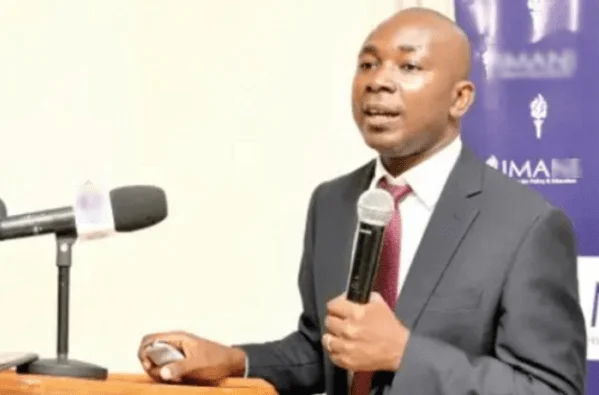Economist and Professor of Finance, Professor Godfred Bokpin, has warned that the ongoing Parliamentary impasse between the NPP Caucus and NDC Caucus over who is the majority in Parliament is likely to result in investors reacting in a manner that will not inure to the benefit of the economy.
According to Prof. Bokpin, investors, for instance, are likely to decide not to roll over the Government’s short-term debt instruments (T-Bills) thereby affecting the Government’s financing arrangements. Others are also likely to store up liquidity in foreign currency which will have dire implications for the local currency.
“I think overall, investors are concerned, and whether we like it or not, the impact may not be in terms of portfolio flows and foreign direct investment flows that may not come. But even ordinary Ghanaians may be reacting to all this development in ways that may not inure to the benefit of the economy.
“It is possible that some investors that have investments in government treasury bills, particularly in the short end of the yield markets may decide out of anxiety and out of the uncertainty and all that is going on, say that they are not going to roll over their maturing bills from let’s say November ending to the early part of December.
“And that has implications for government gross financing arrangements. Some individuals may probably also store up liquidity in foreign currency to try and see in the worst-case scenario where they can quickly run out of this country or something and all of that will not help in terms of the stability of the local currency as well,” he quipped.
Prof. Bokpin made the assertion speaking during the NorvanReports and Economic Governance Platform (EGP) X Space Discussion on the topic, “Ghana’s Parliamentary Impasse: Impact on The Economy and Business Community.”
Meanwhile, the Government last Friday exceeded its T-BIll auction target raising over GHS 5.8 billion in short-term funds. Also, the local currency as of Friday, was selling at GHS 16.78 for $1 on the interbank market.
Speaking further during the X Space, Prof. Godfred Bokpin dismissed concerns that the ongoing parliamentary impasse could impact the government’s ability to pay public sector salaries in the coming year due to delays in approving budget appropriations.
He clarified that while the deadlock in Parliament has disrupted legislative operations, it does not inherently threaten salary payments for public workers.
Addressing the issue, Prof. Bokpin explained that certain provisions within Ghana’s fiscal framework, particularly Article 180 of the 1992 Constitution and sections 23 and 24 of the Public Financial Management Act, allow the government to access funds under an “expenditure in advance of appropriation” measure.
This provision is traditionally implemented in the first quarter of an election year, enabling the government to spend until the formal budget is passed.
Prof. Bokpin highlighted that the approval for expenditure in advance of appropriation must be granted by December 31, giving Parliament ample time to resolve its current crisis and pass the necessary resolutions.
He noted that, in previous election years, such as 2020, the expenditure in advance of appropriation was presented as early as October 28, allowing the government to secure the requisite approval for early-year spending.
He acknowledged, however, that while it would be ideal for Parliament to resolve its impasse promptly to ensure the smooth processing of appropriation, the December 31 deadline remains achievable.
Additionally, despite the delays, some MPs have suggested that the expenditure approval could be finalized immediately following the election if necessary, as long as it meets the constitutional deadline.
Speaking on the way forward and the need to resolve the current Parliamentary impasse, Prof. Bokpin emphasized the collective responsibility of all branches of government to serve as positive examples, stating that the ongoing tensions undermine Ghana’s democratic progress and erode public confidence.
He voiced concerns over the strained relationships between the branches of government, which he believes have intensified since 2021, and warned that this division could lead to unforeseen and potentially destabilizing consequences.
“Our actions and inactions in one way or the other help or take a lot away from us,” he noted, stressing the importance of mindful leadership, especially at the highest levels, where their conduct influences behaviour across all levels of society.
Highlighting the broader economic implications, Prof. Bokpin observed that political stability and unity are crucial to attracting the capital Ghana needs for development.
He cautioned that “capital will only go to where it feels right,” pointing to the nation’s reliance on foreign investment flows and the need for a favourable environment to draw in both portfolio and foreign direct investments.




















